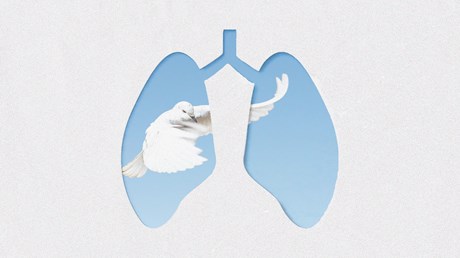The Sustaining Breath of God
As a physician, I witness countless first and last breaths. As a Christian, I am constantly reminded of how God breathes life into us through his Spirit.

The scalpel sliced through the uterine wall. The amniotic sac ruptured, and fluid flowed across the blue surgical drapery toward me. The obstetrician’s fingers curled around the baby’s head while my gloved hands pressed firmly against the mother’s abdomen. The baby was larger than we had expected. I shifted my full body weight against the mother’s belly, and, at last, the newborn’s head slipped through. Her shoulders quickly followed, and there she lay, eyes taking in the bright world for the first time.
Before she could cry, she took her first breath. Air rushed in, pushing aside fluid that had filled her lungs from six weeks of gestation. The oxygen diffused through the blood vessels of the alveoli, tiny air sacs within her lungs, relaxing the pulmonary arteries and allowing blood to course through her lungs for the first time. The short vessel connecting her lung arteries and heart began to close. Pressure built in her heart, causing the tiny hole between its chambers to snap shut.
She breathed more vigorously than anyone else in the operating room, her purple hue softening to a rich pink. Squinting against the glaring light above, she cried again. What a foreign world this is—where air becomes breath, and then breath returns to air.
Ruach is a Hebrew word meaning breath, wind, or spirit. (In the Septuagint, an ancient Greek translation of the Old Testament, it is rendered as pneuma or pneumon, the roots from which we get many English words pertaining to lungs.)
In Genesis, ruach is both the Spirit of God bringing light and order into an unordered world (1:1–4) and the breath of life that God breathes into Adam (2:7). Psalm 33:6 says, “By the word of …